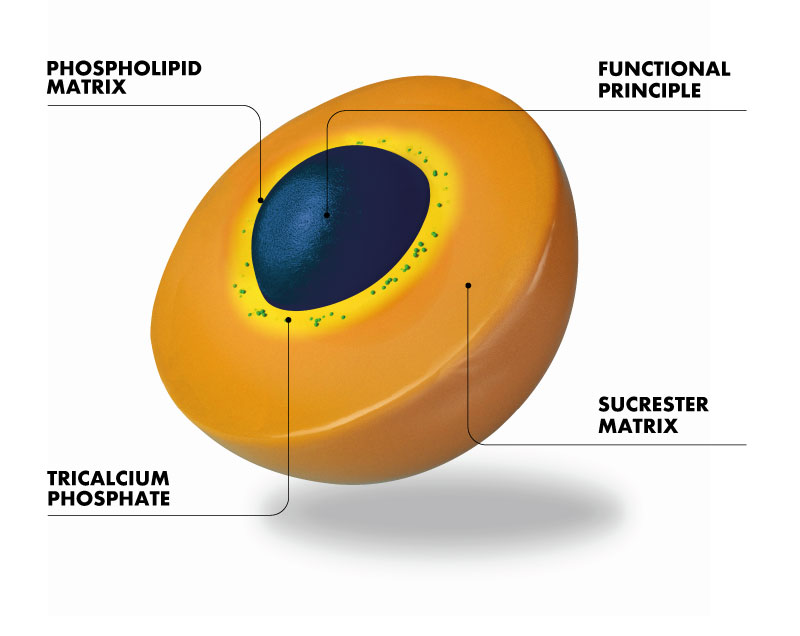SideMag Sucrosomial® Magnesium
Sucrosomial® Magnesium Oxide with high absorption and excellent tolerability
SideMag is a formulation with Sucrosomial® Magnesium Oxide, offering high absorption and excellent organoleptic properties.
SideMag is a new source of Sucrosomial® Magnesium, developed from highly concentrated magnesium oxide (min. 32%).
Thanks to the application of Sucrosomial® Technology developed by Alesco, the magnesium oxide in SideMag passes through the acid gastric environment unaltered, and without irritating the intestinal mucosa, where it is absorbed and then released.
SideMag Marine Sucrosomial® Magnesium
A new source of Sucrosomial® Magnesium, with high absorption and excellent tolerability
SideMag Marine is a formulation with Sucrosomial® Magnesium, the main source of which is extracted from the pure waters of the North seas, offering high absorption and excellent organoleptic properties.
SideMag Marine is a new source of Sucrosomial® Magnesium, developed from sources of magnesium hydroxide of marine origin, containing min. 20% magnesium.
Thanks to the application of Sucrosomial® Technology developed by Alesco, the magnesium hydroxide in SideMag Marine passes through the acid gastric environment unaltered, and without irritating the intestinal mucosa, where it is absorbed and then released.

The properties of magnesium are well known: it is one of the most important macro-elements for human well-being, playing an essential role in many cell reactions and metabolic processes. Magnesium is in fact responsible for over 600 enzymatic reactions, and is a fundamental element for the well-being of the muscle and nervous systems
The homoeostasis of magnesium in the body is controlled by the dynamic interaction between intestinal absorption, the exchange with bones and renal excretion, which controls its final concentration in the blood. Magnesium is absorbed mainly (around 40-50%) in the small intestines, but the presence of other components, including phytates, calcium, phosphorous and long-chain fatty acids, can reduce its absorption.
The recommended daily intake of magnesium is 375 mg, but its use is often associated to gastrointestinal problems, including nausea, diarrhoea and laxative effects.
Health claims approved by the EFSA relating to magnesium intake:
- “Magnesium contributes to a reduction of tiredness and fatigue”
- “Magnesium contributes to normal muscle function”
- “Magnesium contributes to normal energy-yielding metabolism”
- “Magnesium contributes to electrolyte balance”
- “Magnesium contributes to normal protein synthesis”
- “Magnesium contributes to normal functioning of the nervous system”
- “Magnesium contributes to normal psychological function”
- “Magnesium contributes to the maintenance of normal teeth”
- “Magnesium contributes to the maintenance of normal bones”
| Advantages | Applications |
|---|---|
|
|








